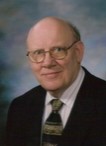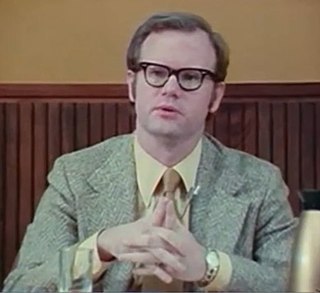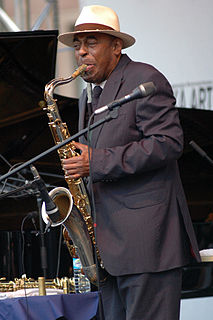A Quote by Ian Mcewan
None of us really either know the circumstances of our death or are likely to exert as much control over it as we would like to, but we can certainly have a little more say in it if we are terminally ill than we have at the moment. That's the element of dignity, but sure, life is very hard to organise even when you are fit and healthy.
Related Quotes
There is a tendency among many shallow thinkers of our day to teach that every human act is a reflex, over which we do not exercise human control. They would rate a generous deed as no more praiseworthy than a wink, a crime as no more voluntary than a sneeze. . . Such a philosophy undercuts all human dignity. . . All of us have the power of choice in action at every moment of our lives.
The world is hard and cruel. We are here none knows why, and we go none knows whither. We must be very humble. We must see the beauty of quietness. We must go through life so inconspicuously that Fate does not notice us. And let us seek the love of simple, ignorant people. Their ignorance is better than all our knowledge. Let us be silent, content in our little corner, meek and gentle like them. That is the wisdom of life.
The first thing I would like to tell you about death is that there is no bigger lie than death. And yet, death appears to be true. It not only appears to be true but also seems like the cardinal truth of life - it appears as if the whole of life is surrounded by death. Whether we forget about it, or become oblivious to it, everywhere death remains close to us. Death is even closer to us than our own shadow.
Yes, we know more than ever before, and it's a wonder that we get to inhabit a world full of driverless cars and 3D printers. But that doesn't mean that we know any more about the essential things in life - love, faith, death - and it would be dangerous to assume we did. The only thing that gets us through sometimes is a proper, humbled sense that we don't have a clue, we can't be sure what's going to happen next and life will always be much larger than our ideas of it.
In this nation I see tens of millions of its citizens, a substantial part of its whole population, who at this very moment are denied the greater part of what the very lowest standards of today call the necessities of life. I see one third of a nation ill-housed, ill-clad, ill-nourished. The test of our progress is not whether we add more to the abundance of those who have much, it is whether we provide enough for those who have too little.
We are left with nothing but death, the irreducible fact of our own mortality. Death after a long illness we can accept with resignation. Even accidental death we can ascribe to fate. But for a man to die of no apparent cause, for a man to die simply because he is a man, brings us so close to the invisible boundary between life and death that we no longer know which side we are on. Life becomes death, and it is as if this death has owned this life all along. Death without warning. Which is to say: life stops. And it can stop at any moment.
If someone does something we disapprove of, we regard him as bad if we believe we can deter him from persisting in his conduct, but we regard him as mad if we believe we cannot. In either case, the crucial issue is our control of the other: the more we lose control over him, and the more he assumes control over himself, the more, in case of conflict, we are likely to consider him mad rather than just bad.
For some people, it's very easy to be spontaneous and they can pour out the most wonderful stuff. But it's really hard to exert control over it, to think, 'Well, this could be different. This could go in the opposite order, there could be more here and less there.' For other people, it's much easier to have rules and a methodology, but much harder to let loose and allow their feelings to come pouring out on the page. They're more shy or they're just more distant from their emotions. I think everybody starts with one or the other.
Our mother's first gift to us comes at the moment we are born, because Mom, as she will subsequently remind us over and over, gives us the Gift of Life Like many of the gifts we receive from our mothers, the Gift of Life usually doesn't fit properly and is almost never returnable without a major hassle.
Our moment had passed somehow. I was different. He was, too. Without our “madness” to unite us, there wasn’t anything much there. Or maybe too much had happened in too short a time. It’s like when you take a trip with someone you don’t know very well. Sometimes you can get very close very quickly, but then after the trip is over, you realise all that was a false sort of closeness. An intimacy based on the trip more than the travellers, if that makes any sense.
Every life is punctuated by deaths and departures, and each one causes great suffering that it is better to endure rather than forgo the pleasure of having known the person who has passed away. Somehow our world rebuilds itself after every death, and in any case we know that none of us will last forever. So you might say that life and death lead us by the hand, firmly but tenderly.







































